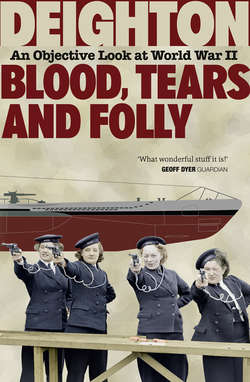Читать книгу Blood, Tears and Folly: An Objective Look at World War II - Len Deighton - Страница 44
The world after the First World War
ОглавлениеGeorges Clemenceau, the prime minister of France, said in 1917: ‘War is a series of catastrophes which result in a victory.’ For France that was true. As in the war to come, she emerged victorious only because the United States entered the war on the Allied side. Her provinces of Alsace and Lorraine were returned to her, and French troops occupied Germany’s Rhineland and Saar. But the victory was a sham. The northern region of France had been the heart of its industrial strength, and after many battles had been fought there, it was devastated. France was bankrupt and deeply in debt. Jules Cambon, a French diplomat, saw the drastic decline in fortunes and wrote: ‘France victorious must grow accustomed to being a lesser power than France vanquished.’
Germany had fought and survived the combined forces of Britain, France, the USA, Italy and Russia. The Fatherland was intact, and fighting had not brought destruction to any region of Germany, which even in defeat remained the strongest power in Europe. Germany’s population of 70 millions was growing, while France’s population of 40 millions was static. Within a decade of the peace treaty there would be twice as many Germans reaching military age each year as Frenchmen. Furthermore Germany’s potential enemies were weakened; by internal strife (Russia), by division into smaller units (Austria-Hungary); by impoverishment (Britain and France), or by concern for their own affairs (USA).
The sacrifices they had made persuaded the French people that they alone had won the war, and their government did nothing to correct this false impression. The Canadians buried at Vimy Ridge, the British sailors lost at sea, Australians and New Zealanders who had fallen at Gallipoli, the Indian Corps which had frozen at Armentières in the first winter of the war, Americans killed at Champagne and Argonne, all these were forgotten. Her allies became bitter at what they considered a lack of gratitude, and the Anglo-Saxon nations moved into isolation and away from friendship with France. The French thought the world was being too kind to the Germans, and began to regard themselves as the sole guardians of the Versailles treaty. For this reason the French army was never to be short of men or money.
